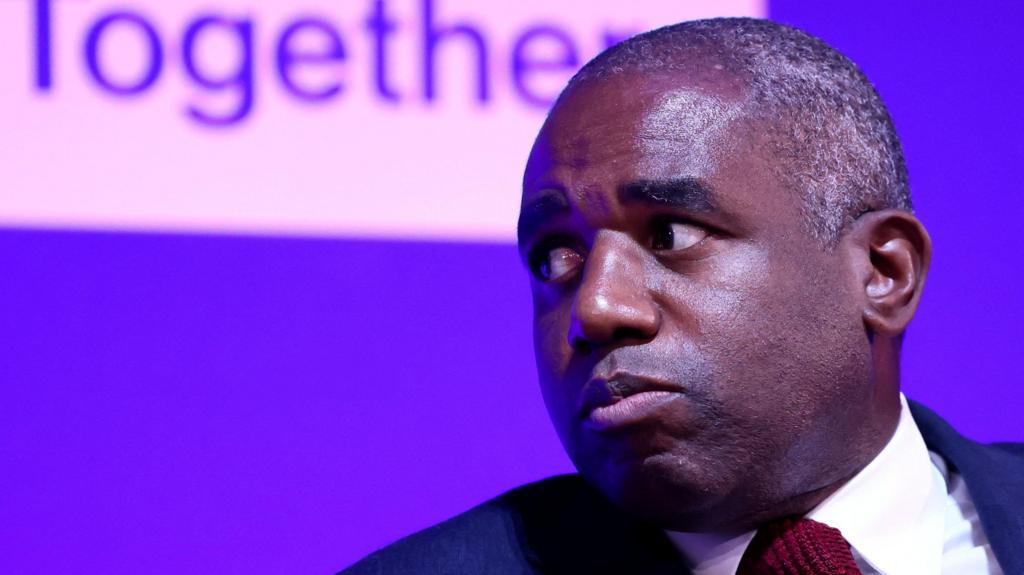A government’s authority invariably suffers when it demonstrably lacks control over an issue that voters reasonably expect it to manage effectively.
The influx of migrants arriving on small boats stands out as a prime example in recent years.
From Rishi Sunak’s pledge to “stop the boats” to Sir Keir Starmer’s promise to “smash the gangs,” both leaders have fallen short, and the problem persists on a significant scale.
Now, the government faces another challenge: a justice system that is palpably, transparently, and repeatedly failing, with measures designed to prevent the accidental release of prisoners proving ineffective.
According to government figures released in July, 262 prisoners were released in error in the year leading up to March of this year – a 128% increase compared to the 115 incidents recorded in the previous 12 months.
In other words, this issue has been ongoing for some time, and it is worsening.
Moreover, context is crucial in politics: this controversy arises following the mistaken release of perhaps the most high-profile prisoner incarcerated this year.
Hadush Kebatu, who arrived in the UK on a small boat, was imprisoned for sexually assaulting a 14-year-old girl and a woman while residing in an asylum hotel in Epping, Essex, only to be released by mistake. He has since been deported.
This incident has brought the issue of accidental prison releases to the forefront, granting it a salience and prominence it previously lacked.
Once again, we are witnessing ministers employing language typically used by opposition politicians.
The Home Secretary Shabana Mahmood has characterized the number of individuals arriving on small boats as “shameful.”
Now, the Deputy Prime Minister and Justice Secretary David Lammy is expressing his “absolute outrage” over the mistaken release a week ago of Brahim Kaddour-Cherif, a 24-year-old Algerian sex offender.
Lammy added that his officials have been “working through the night to take him back to prison.”
This brings us to the convoluted genesis of this saga, which unfolded during B-Team Prime Minister’s Question Time on Wednesday lunchtime.
With the prime minister attending the COP climate summit in Brazil, his deputy was responsible for answering questions.
The Conservatives put forward the shadow defence secretary James Cartlidge, who repeatedly posed a question, employing a very specific phrasing, over and over.
He sought to ascertain whether an “asylum-seeking offender had been accidentally released from prison.”
It was evident from the Press Gallery that Cartlidge was onto something – due to the apparent precision of his language and his persistent repetition of the question.
However, Lammy chose to repeatedly evade the question, despite, as we later learned, being aware of the case Cartlidge was referencing.
So why didn’t he address it?
It turns out Cartlidge had gotten his facts wrong – Kaddour-Cherif isn’t an asylum seeker. He arrived here legally but then stayed after his visa expired.
And, I understand, Lammy wasn’t certain on entering the chamber whether he was an asylum seeker or not.
So setting out what he knew might also have exposed what he didn’t.
His team insist “it is incredibly important to know the facts” and they argue it was for the police in the first instance to do that publicly.
Really? It seems reasonable to ask both whether Lammy could or should have known more when he arrived in the chamber and whether he could or should have disclosed more when he was there.
The Conservatives later called for him to return to the Commons to set out what he knew. The former Tory leader Sir Iain Duncan Smith suggested he may have misled the Commons. The Liberal Democrats and Reform have been very critical too.
Some also suggest Lammy’s manner – shouting “get a grip, man!” at Cartlidge, among other things – was a mistake.
Could he instead have chosen to set out what he did and didn’t know about the case at the beginning of the exchanges, before he took any questions?
But it is the bigger picture here that really matters: The justice system is currently repeatedly failing in that most basic of its tasks – who should be in prison and who shouldn’t.
The reasons for that are complex – with difficult questions for the courts, individual prisons, the Prison Service, the Ministry of Justice and the Home Office.
It is not a new problem, but it is a growing one, and one the government doesn’t have a grip on. And that, if you are the justice secretary, is a problem.
Two men were released from HMP Wandsworth in error in the past week, with police hunts under way.
When the chief inspector of Scotland’s prisons visited Glenochil in February, the 668-capacity jail was holding 770 inmates.
The prison is doing “reasonably well” despite mixed progress with recommendations, inspectors say.
Billingham teenager Bella Culley is facing two years in prison in Georgia, South Caucasus.
The early release scheme was launched in September 2024 as an emergency measure to tackle overcrowding.

